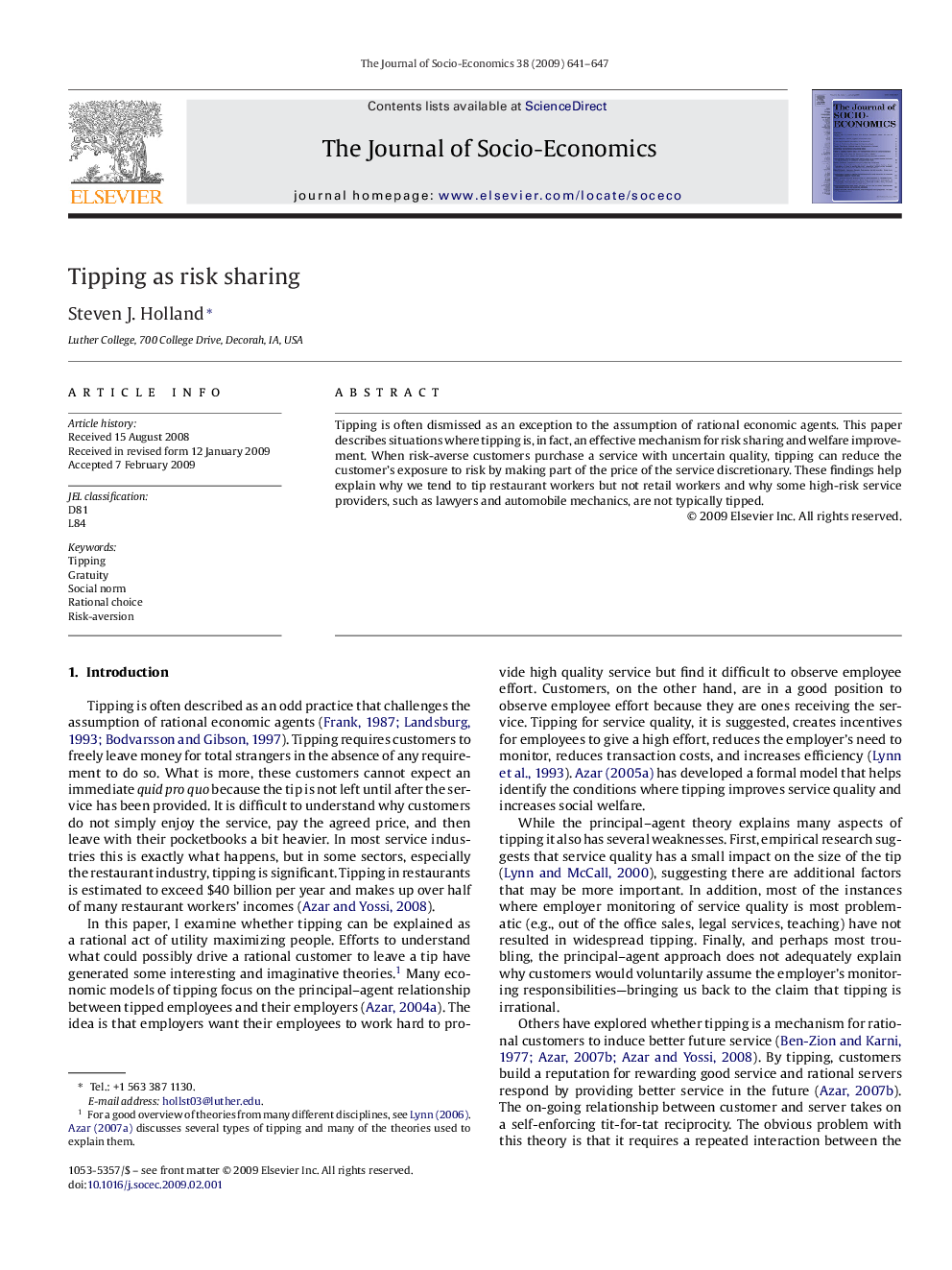| Article ID | Journal | Published Year | Pages | File Type |
|---|---|---|---|---|
| 971015 | The Journal of Socio-Economics | 2009 | 7 Pages |
Abstract
Tipping is often dismissed as an exception to the assumption of rational economic agents. This paper describes situations where tipping is, in fact, an effective mechanism for risk sharing and welfare improvement. When risk-averse customers purchase a service with uncertain quality, tipping can reduce the customer's exposure to risk by making part of the price of the service discretionary. These findings help explain why we tend to tip restaurant workers but not retail workers and why some high-risk service providers, such as lawyers and automobile mechanics, are not typically tipped.
Related Topics
Social Sciences and Humanities
Economics, Econometrics and Finance
Economics and Econometrics
Authors
Steven J. Holland,
